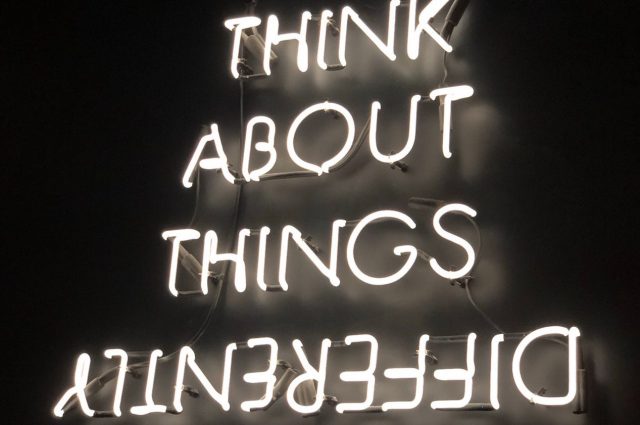

No matter what the details of your addiction recovery journey, experts agree - the use of CBT (or Cognitive Behavioral Therapy, as it is known) is a powerful tool to prevent relapse and fight off temptation. One study[1] of cocaine-dependent patients even showed 60% of patients subjected to Cognitive Behavioral Therapy remained clean upon a 52-week toxicology screen!
The DrugAbuse.Gov[2] website says the following about CBT:
Cognitive-behavioral strategies are based on the theory that in the development of maladaptive behavioral patterns like substance abuse, learning processes play a critical role. Individuals in CBT learn to identify and correct problematic behaviors by applying a range of different skills that can be used to stop drug abuse and to address a range of other problems that often co-occur with it.

A healthy diet and regular exercise can assist your addiction recovery efforts by easing the pain caused by withdrawal symptoms and drug cravings.
Cognitive Behavioral Therapy teaches you to stop and think about what you are doing and why you are doing it. This is important to interrupt the pattern that keeps you trapped in your addiction. Cognitive Behavioral Therapists can utilize a wide array of tools to help you to identify your problem behavior’s triggers, your responses, and then give you a methodology to interrupt the behavior before it leads to a relapse - see below.
A central element of CBT is anticipating likely problems and enhancing patients’ self-control by helping them develop effective coping strategies. Specific techniques include exploring the positive and negative consequences of continued drug use, self-monitoring to recognize cravings early and identify situations that might put one at risk for use, and developing strategies for coping with cravings and avoiding those high-risk situations.
One of the cruxes of Cognitive Behavioral Therapy is understanding what triggers your addiction. Let’s break down a few of the most common triggers below.

Loneliness is a common cause for the urge to use drugs or alcohol.
HALT is an acronym that stands for Hungry, Angry, Lonely, Tired. If you feel the need to relapse during your recovery journey, stop and ask yourself: Am I experiencing HALT?
When we think of hunger, we immediately think of physical hunger, a need for food. The signals your body sends to the brain can push you towards substance use as a coping mechanism. Learn about your body’s needs and find a snack or food that meets them. Perhaps this will cause your impulse to relapse to disappear.
Hunger can also refer to a psychological need, such as affection or intimacy. The lack of these things can also encourage us to relapse - so work out what you are missing in life with your therapist.
Anger causes a spike in the so-called “stress hormone”, Cortisol. If you are feeling anger, the urge to relapse may become very strong, as you attempt to counteract the elevated Cortisol with dopamine. There are a great many therapeutic techniques to help you deal with anger. Speak to your therapist about the subject.
The terrible feeling of loneliness - isolation, separation, being apart from others - is a powerful one. If you are feeling the need to use, consider seeing a friend or reconnecting with a family member.
A lack of sleep, or physical exhaustion, will wear down even the most stalwart individual. Sleep is tied to a great many physiological processes, and not getting enough of it will impair your ability to reason and your ability to cope. As a result, your tolerance for irritations in your life will be low - possibly feeding into anger - and substance use will seem increasingly more valid.

Mental health treatment is a crucial part of achieving sobriety in drug rehabilitation.
Any mental state wherein you are feeling down or hopeless can easily lead to apathy, which leads back to substance use. Speak to your therapist and other care providers about any depression, anxiety, or erratic behavior you observe in yourself. Keep a journal to watch for negative patterns in yourself mentally, and be on the lookout for any unwanted behaviors.
Likewise, physical illness and its various symptoms can make the allure of relapse seem very attractive. It is of the utmost importance to inform all your care providers that you are an addict in recovery. They need to know this information in order to make the best possible decisions regarding your care.
Nearly anyone could tell you that negative emotions and events can lead you to relapse, but the opposite is also true. Many people overlook positive or happy events as being a potential trigger for substance use. The allure of “one little drink” (or your substance of choice) as a celebration is a dangerous pitfall that can lead you to a full-blown relapse. Be mindful of your cravings in the context of a joyous occasion and head off trouble.
Some of these can be obvious, and some can be very subtle. A certain coworker or friend could remind you of the “good old days”, or even actively encourage you to relapse. Walking past a favorite bar. Talking to an ex, or a family member that gives you strong negative emotions. Interacting with former friends or associates who used drugs with you. A fast-food parking lot where substance transactions took place. Reminders of a wedding or other event you drank at. Eating specific foods or listening to a certain genre of music. The scope of potential triggers of this type is astounding - work with your therapist to identify and avoid them.
Thinking about your “good old days” and ignoring the negative consequences is an easy path to returning to them. Do not dwell on the “good times” you may have had; any recollection of those should be paired with remembering the downsides of your behavior. Avoid being around any paraphernalia, or even media glamorizing or glorifying substance use.
This was but a brief list of common triggers that can lead you to relapse. Your CBT care professional will cover more, and help narrow down your specific triggers, as well as the tools he or she believes will work best for you to interrupt any unwanted behaviors. CBT can be a powerful methodology in your recovery process.
Sources:
[1] https://jamanetwork.com/journals/jamapsychiatry/article-abstract/206714